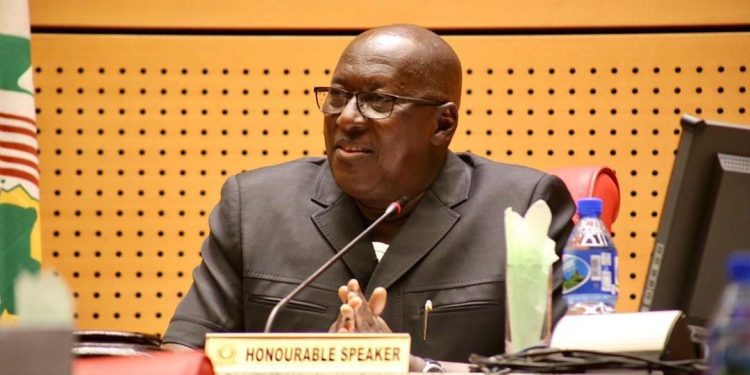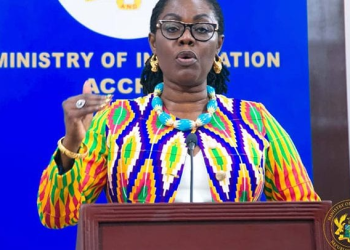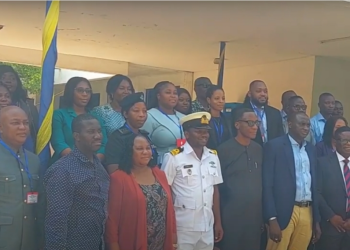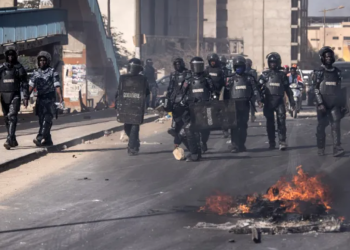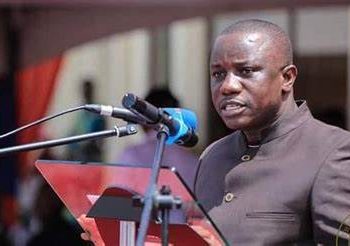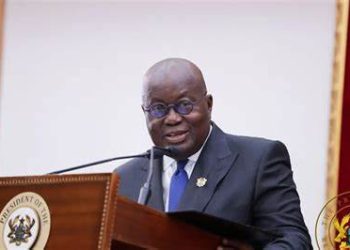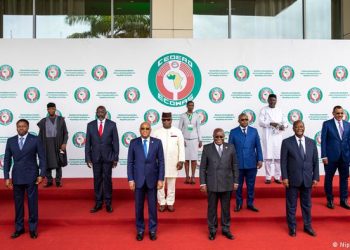The ECOWAS Parliament is launching an effort to address the growing menace and threat of presidential term elongations to regional security, constitutional rule, good governance, and the rule of law.
A high-level parliamentary seminar will therefore take place in Winneba, Republic of Ghana, from 25th September to 2nd October 2023, bringing together all members of the ECOWAS Parliament, officials of the ECOWAS Commission, and other major stakeholders. The Vice-President of Ghana, Alhaji Dr Mahamudu Bawumia, will open the seminar.
The seminar’s theme is “The Challenges of Tenure Elongation and Unconstitutional Regime Change in West Africa – The Critical Role of the ECOWAS Parliament,” with a focus on strengthening parliamentary democracy, good governance, and the rule of law in the region. It aims to provide a platform for the exchange of ideas and best practices, promoting the principles of democracy, human rights, and the rule of law in West Africa.
Voices Supporting Term Limits
The Seminar will take place more than a year after Nigeria’s President, Mahamadu Buhari made “a clarion call for a coordinated continental response that condemns all forms of unconstitutional Change of Government in Africa” at a meeting of the African Union in Malabo, Equatorial Guinea, in May 2022.
“We should also get the International community to buy into and cooperate fully with the African Union in imposing coordinated measures on those countries violating constitutional order,” he told colleague leaders gathered in Malabo.
Two years earlier, the Nigerian Leader, who is now in the final days of his Presidency after serving two four-year terms as a democratically elected leader of Africa’s most populous nation and economy made a similar call.
Addressing the 57th Ordinary Session of the Authority of Heads of State and Government of the Economic Community of West African States (ECOWAS), in Niamey, Niger, he said: “As leaders of our individual Member-States of ECOWAS, we need to adhere to the constitutional provisions of our countries, particularly on term limits. This is one area that generates a crisis and political tension in our sub-region.
“Related to this call for restraint is the need to guarantee free, fair and credible elections. This must be the bedrock for democracy to be sustained in our sub-region, just as the need for adherence to the rule of law.”
The Ghanaian leader, President Nana Akufo-Addo, has also been a strong advocate of term limits for African leaders as it promotes democracy and fresh ideas in governance.
Speaking to Ash FM in Kumasi in October 2022, the Ghanaian leader said that term limits promote the “stability of democracies, especially the Presidential systems,” and that they prevent “abuse of office and coup d’états”.
Ghana, he said, has maintained political stability since 1992 largely because qualified citizens have the opportunity to vote every four years to change or maintain a party in government.
In his words, “Using the ballot box has contributed to the stability of our country. People believe that if a leader is not doing well, they can vote against that leader in four years’ time. We don’t need a coup to change someone.”
History of Term Limits in Africa
The history of presidential term limits in Africa highlights the importance of the seminar to be held in Winneba by the ECOWAS Parliament. Until the late 1980s, Liberia was the only country in Africa with a clear presidential term limit in its constitution. Political instability plagued the continent as many countries were dominated by a single leader who believed themselves indispensable, often leading to their removal by force. Between 1961 and 1997, Africa experienced 78 coups d’état.
By 1995, at least 33 countries had amended their constitutions to include presidential term limits. The Organisation of African Unity, now the African Union, developed a rule against coups and “unconstitutional changes in government,” recommending that any manipulation of the constitution aimed at preventing democratic change be outlawed. By the 2000s, term limits and elections had become the most common ways for African presidents and prime ministers to leave office, replacing coups and death.
Thus, term limits have proved effective in curbing the excesses of all-powerful executives, allowing for greater investment in critical democracy-strengthening institutions like the judiciary, legislature, and election management bodies.
However, as of 2021, 16 African countries have removed term limits from their constitutions or extended the incumbent president’s tenure against the spirit of term limits. Additionally, eight countries have no term limits in their constitutions, while nine other countries have term limits in law but have yet to test or apply them in practice.
Authors like Joseph Siegle and Candace Cook have expressed strong fears that failure to reverse the erosion of constitutional term limits risks bringing Africa back to an era of de facto “presidents for life” and one-party states.
Criticism of Term Limits
Critics of term limits argue that they compromise the sovereignty of the people and their choice and undermine stability and continuity for development.
Ayisha Osori recently wrote an article titled “How Tenure Elongation and a Lack of Term Limits Weakens the Integrity of Elections in Africa” and made a case for the African Union to lead a collective review of the application of the non-retroactivity principle to constitutional amendments to prevent sitting leaders from legally hijacking their countries.
She also argued that citizens must be supported through investments in organizing and social movement building to ensure that they have the tools to demand that their rights are respected, including the right to free, fair, and credible elections.
The upcoming seminar in Winneba, therefore, highlights the urgent need to address the challenges of tenure elongation and unconstitutional regime change in West Africa, with the aim of promoting parliamentary democracy and good governance.
Invitations to Winneba
Ahead of the meeting of regional lawmakers in Winneba from 25th September to 2nd October this year, the ECOWAS Parliament has officially notified stakeholders of the seminar and sought the support of the government of the Republic of Ghana.
Citi News understands that the seminar is one of the ways the Parliament is fulfilling its mandate to promote regional integration and economic development in the region.
In a letter dated 3rd May 2023, the Speaker of the ECOWAS Parliament, Dr. Sidie Mohammed Tunis, informed Effutu Member of Parliament and Deputy Majority Leader, Alexander Kwamena Afenyo-Markin, of the decision to have Winneba host the seminar.
“I have the honour to write and inform you that in line with its 2023 Annual Activity Programme, the ECOWAS Parliament is convening a High-level Interactive Seminar from 25 September – 2nd October 2023 in Winneba, Republic of Ghana,” said the letter. The seminar, the letter added, “is expected to bring together all the Members (MPs) of the ECOWAS Parliament, officials of the ECOWAS Commission, and other stakeholders”.
In late 2021, Winneba made history when it became the first town outside Ghana’s capital to host an Extraordinary Meeting of ECOWAS MPs and close to 200 international dignitaries.
In an interview with Citi News, Mr Afenyo-Markin commended the ECOWAS Parliament’s decision to hold another major international seminar in Winneba in September. He described it as a significant gathering and a testament to the quality of organization demonstrated in previous meetings in 2021.
Afenyo-Markin expressed gratitude for the opportunity, saying that it was a blessing that should be celebrated.
As the head of Ghana’s delegation to the ECOWAS Parliament, Afenyo-Markin assured that the chiefs, opinion leaders, and people of Winneba and Ghana were eager to welcome all delegates and provide them with unforgettable memories of the country’s culture, hospitality, and friendship.
Additionally, he saw the seminar as a chance to put Winneba on the international map and create new opportunities for local businesses and individuals to generate income by offering essential services to visiting dignitaries

